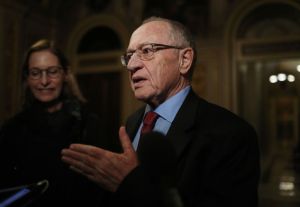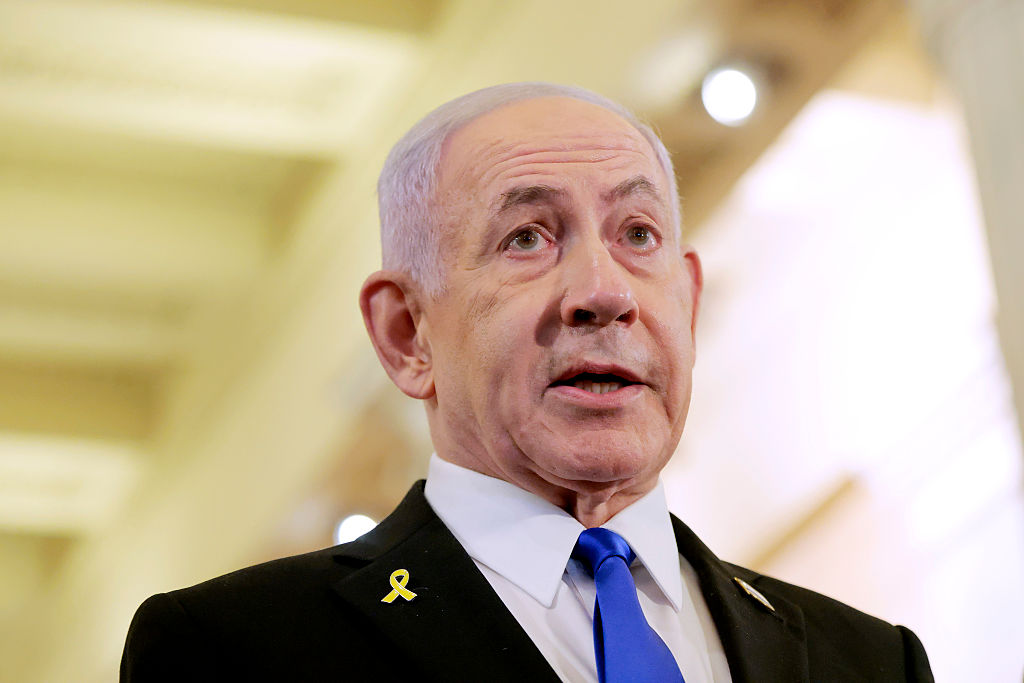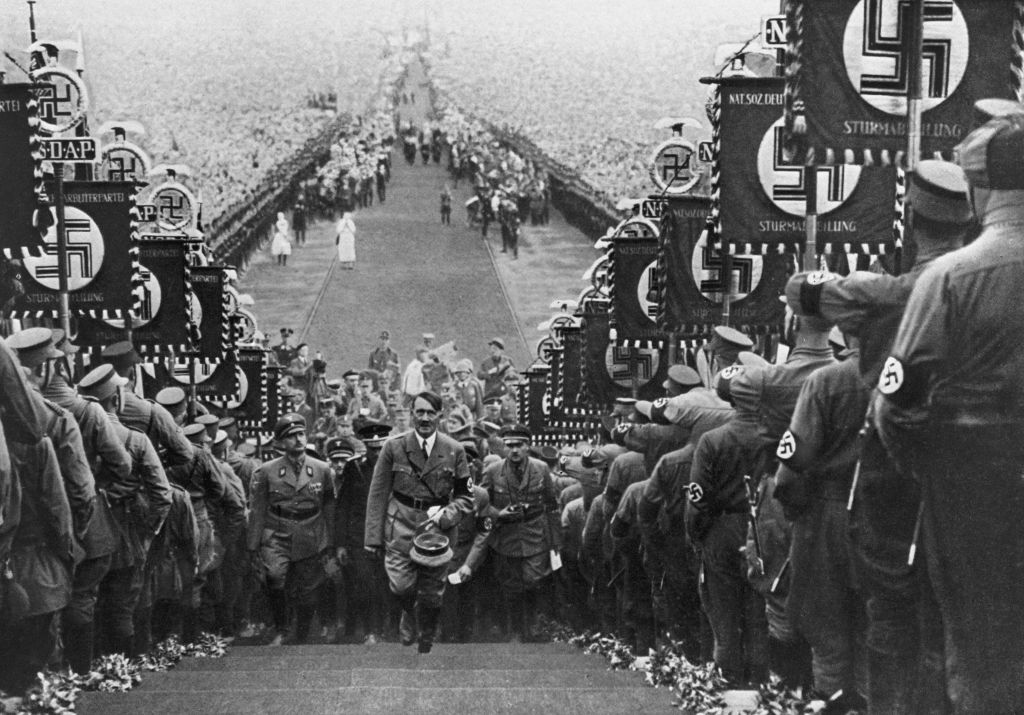Benjamin Netanyahu is the great survivor of Israeli politics, but his grip on power is slipping. “You can fool some of the people all of the time, and all of the people some of the time, but you can not fool all of the people all of the time.” Abraham Lincoln’s saying applies now more than ever to Israel’s prime minister. Netanyahu’s time will surely soon be up.
Netanyahu cannot escape his inevitable legacy
Motivated by self-preservation, Netanyahu has desperately tried to evade responsibility for the many failures that led to Hamas’s brutal attack on October 7. In the months since, Netanyahu has done his best to block a ceasefire deal that will save the lives of hostages and ease the suffering of Israel’s war-torn northern towns. Israelis know that Hamas remains the biggest obstacle to securing the release of the hostages — but they are also tiring of their leader.
Netanyahu’s motivation seems to be to cling on to power whatever the price. For as long as he is PM, Netanyahu can delay an official inquiry into the war and keep spinning stories to justify his actions — but he’s only delaying the inevitable. Eventually, the disastrous truth about his leadership — which led to the failure to stop October 7 and great damage to Israel’s relationship with its closest allies — will emerge and define his legacy.
Netanyahu has always had a complex relationship with the truth; bending it to suit his interests, using fear-mongering, divisiveness and disinformation to demonize, vilify and discredit any opposition. These are the guiding principles of “Bibism”: Netanyahu’s political ideology is meant to glorify him and absolve him from responsibility for anything that goes wrong.
The war in Gaza has made his style of leadership much more dangerous. For months, when Israel and Hamas get close to a ceasefire deal, Netanyahu seems to find a way to hold things up. The usual pattern is to add last-minute terms that Hamas would never agree to, and then publicly blame Hamas for the breakdown in negotiations. This has infuriated Israelis and frustrated President Biden.
Netanyahu has insisted that Israeli forces must remain in the Philadelphi corridor, knowing that it’s a deal-breaker for Hamas. Although the zone, which sits along the border between Egypt and the Gaza Strip, is important for cutting off much of Hamas’s weapons supply, defense minster Yoav Gallant, along with the Israeli Defense Forces chief of staff Herzl Halevi and the rest of the defense and intelligence establishment, support a withdrawal of forces in order to secure the safe return of Israeli hostages. Security sources argue that the area could be re-taken without much difficulty. But a ceasefire deal that could set the hostages free remains out of reach for as long as Netanyahu refuses to back down on this issue. The cold-blooded execution of six hostages, four of whom were included in the list of people to be released in a ceasefire deal, have enraged the public, who have blamed their deaths on Netanyahu.
Is Netanyahu motivated by security considerations? It seems hard to believe that these are his only concern. Netanyahu has ignored the known dangers of Philadelphi — where Hamas has been smuggling vast amounts of weapons and other supplies — for years. But the area is now a convenient excuse for delaying a deal that could trigger the collapse of his government because hard-right ministers and members of Knesset object to a ceasefire and could resign as a result.
Netanyahu is well aware that, if this happens, his successor will establish a national inquiry — something he desperately wants to avoid. He has resorted once again to fear-mongering, but most Israelis, the media and the Americans, know the real reason an agreement hasn’t been reached.
Sources including members of the coalition and opposition, people directly involved in the negotiations, officials from intelligence agencies and those present in meetings attended by Netanyahu, have come forward to claim that Israel’s leader doesn’t want a deal — despite repeatedly suggesting the opposite in public. Observers have described actions taken by Netanyahu to undermine an agreement and the panic that hits every time one seems within reach.
Netanyahu has persistently claimed that he didn’t know Israel was under immediate threat
Following October 7, Netanyahu has persistently claimed that he didn’t know Israel was under immediate threat. He wasn’t told. He was unaware, and is therefore absolved of responsibility. Unfortunately for him, officials have poured cold water on Netanyahu’s claims. They say Israel’s leader was aware of the severe and immediate danger to his country from Hamas and Iran and that he chose not to act.
Netanyahu’s critics say that he was advised — repeatedly — that Israel’s enemies viewed the deep societal divisions caused by his government’s policies, including its insistence on delivering an extremely unpopular judicial reform, as a sign of weakness, and were preparing to strike. His was a government that succumbed to demands from ultra orthodox and ultra nationalists in order to guarantee its survival, while neglecting Israel’s security, economy and community cohesion.
The failures in the run-up to the October 7 attack aren’t only Netanyahu’s, of course. Some of what happened can be blamed on institutional complacency that assumed, wrongly, that Hamas was both deterred by the IDF and appeased by the continued stream of suitcases full of Qatari cash. However, those assumptions were starting to diminish in the year prior to the attack. Netanyahu, it seems, was told as much. The military and intelligence agencies will be held accountable for their failures, including why warnings in the days and hours before the attack were not taken seriously. However, the buck stops with the man who was prime minister for over sixteen years, and who has allowed Hamas to become the considerable, powerful, sophisticated threat that it has become under his watch.
In July 2023, the head of Shin Bet, Israel’s internal security agency, Ronen Bar reportedly warned Netanyahu that Israel faced a severe and immediate threat. Although he did not give a specific day and time, it was claimed that he told Netanyahu war was coming. In June that year, defense minister Gallant publicly warned that Israel faced a high probability of a prolonged multi-front conflict that would place civilians at great risk. His words were prescient. So what was Netanyahu doing?
Former Israeli PM Yair Lapid told a civilian inquiry into the war that before last October he received several briefings about Israel’s diminished deterrence and the threats it faced. Netanyahu was present in at least one of these briefings, it has been reported, and, according to a source, “looked bored and indifferent.”
If Netanyahu was indeed warned, it’s certainly hard to see what he did to prepare Israel. Under Netanyahu, the army has suffered cuts to its budget and size. In the months leading up to October 7, forces were also diverted to the West Bank, where both settler and Palestinian violence was increasing.
On October 7, when Hamas attacked, Israel was caught sleeping. Forces took far too long to arrive and fight off the terrorists and armed civilians who were massacring and kidnapping civilians and soldiers in under-staffed bases near the Gaza Strip.
If Netanyahu did indeed ignore warnings, these events are likely to be the subject of a future inquiry. But whatever the truth, the testimony of witnesses certainly suggests that Israel’s leader had at the very least taken his eye off the ball.
Netanyahu cannot escape his inevitable legacy. The public, and history, will forever hold him accountable for failing to stop the worst massacre in Israel’s history and for mishandling everything that came after, including not doing more to save Israeli hostages.
This article was originally published on The Spectator’s UK website.


























Leave a Reply